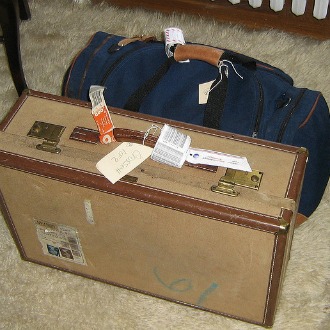The BMA has updated its guidance to GPs on treating overseas patients as the Government has intensified its campaign on recovering costs of treating ‘health tourists’ in secondary care.
Based on new guidance issued by the Department of Health on the charging of hospital patients, the BMA’s guide aims to clear up confusion among GPs, including which overseas visitors they must treat free of charge, who they can decline treatment and who they may charge to treat privately.
The key points include advising GP practices that they must treat, free of charge, any overseas patient in their area who needs emergency care, including if this is caused by a pre-existing condition which has become exacerbated during their UK visit.
Practices are also reminded they must have procedures in place to ensure these patients can be treated, for example by registering them as temporary residents.
They are also reminded not to discriminate against any patient based on race or appearance, so if they do ask for proof of immigration status, they must do so for all patients.
However, the guidance also clarifies that practices may turn away overseas visitors for care subject to their own discretion if they do not need urgent treatment. Alternatively, in such situations, they can offer care on a private basis and may charge a fee for doing so.
The BMA’s guidance said: ‘When a person does not require emergency or immediately necessary treatment, practices have some degree of discretion under the contract regulations about whether to register the person…
‘Any person who does not require emergency or immediately necessary treatment and has not been accepted onto a patient list or accepted as a temporary resident can still be treated by a GP on a private basis, for which they may be charged. Alternatively those persons can be directed to contact the appropriate local body, who can advise on what services are available locally.
It added: ‘We advise practices to use their discretion and consider the individual circumstances of an overseas visitor who cannot provide documents that they would normally require for patient registration.’
Since April, hospitals are advised to charge ineligible migrants at 150% of the tariff price for secondary care however the DH guidance says GPs ‘should not be discouraged’ from referring any patient for treatment on the basis they may have to pay.
The DH is still working up plans for implementing charging of overseas migrants for primary care and it is also piloting models for how GPs can help inform secondary care of where a patient may not be eligible for free treatment, including asking all new patients for EHIC cards.
BMA key pointers to GP practices on treating overseas visitors
Practices:
- have a contractual duty to provide emergency treatment and immediate necessary treatment for up to 14 days to any person staying in their practice area, including for pre-existing conditions exacerbated during UK stay
- should have procedures in place to identify and treat these patients, registering them as a temporary resident being one option
- have discretion about whether to register the person if they do not need emergecny or immediately necessary treatment
- must not turn any patient down due to race, gender, social class, age, religion, sexual orientation, appearance, disability or medical condition
- cannot demand proof of identity or immigration status to register but can ask them to produce it voluntarily if this is done for all patients
- are advised by BMA to use their discretion and consider the individual circumstances of an overseas visitor who cannot provide dcuments that they would normally require for patient registration
- can treat patients who do not require emergency or immediately necessary treatment privately, and may charge them to do so.
Source: BMA
















